
In our new format ‘5 questions for...’ students give exciting insights into their studies and everyday life at university. Don't miss any new stories and follow us on Instagram to stay up to date!
-
5 questions for Tobias
1) Why did you decide to study Information Systems in Münster?
I had previously looked at various degree programmes in business informatics and computer science at other universities in Germany. I had the feeling that Münster had the best balance between computer science, business studies and business informatics, at least in my perception. And although we are at a business school here, you can still choose your specialisation in computer science.
2) Which module or course have you enjoyed the most so far?
I liked IT Systems best in the bachelor’s programme. The course was very clear and hands-on. Afterwards, I had the feeling that I understood what happens in the background when you programme something, or how systems that you use every day work under the bonnet. I found Process Engineering to be my favourite part of the master’s degree because, for me, it is simply a perfect example of business informatics in Münster - it is precisely the interface between business and informatics, i.e. business processes and the actual implementation of these.
3) What makes Münster special as a study city?
That the university is spread all over the city. I don't know of any other city where the university and the city merge into each other like this, and because you meet other students everywhere, I have the feeling that there is simply a lot more dialogue - even between the different disciplines.
4) How do you envisage your professional future after studying Information Systems?
First, I'll be continuing my studies here at the university; from June, I'll be starting a position as a research assistant here at the institute, after which I can well imagine either working on products - i.e. really at the interface between the technical implementation and the design of the products - or possibly working on my own business idea again.
5) What tips would you give new students for starting their studies?
Basically, two things: firstly, university really isn't like school - I had to learn that the hard way in my first semesters - at least for me, it has been much easier since I started to deal with the content regularly and not just start just before the exams. And secondly, the first few semesters are the best time to realise whether studying or the subject is for you at all. Then realising that you might prefer to do something else or maybe not want to study at all is absolutely no shame and no failure.at the end of the day, it doesn't matter how long it took you or how often you changed - what are those few semesters compared to the rest of the years in your life?
You can find the full interview on our Instagram channel: Reel - 5 questions for Tobias
You can find more testimonials from our Master's students here.
-
Paul
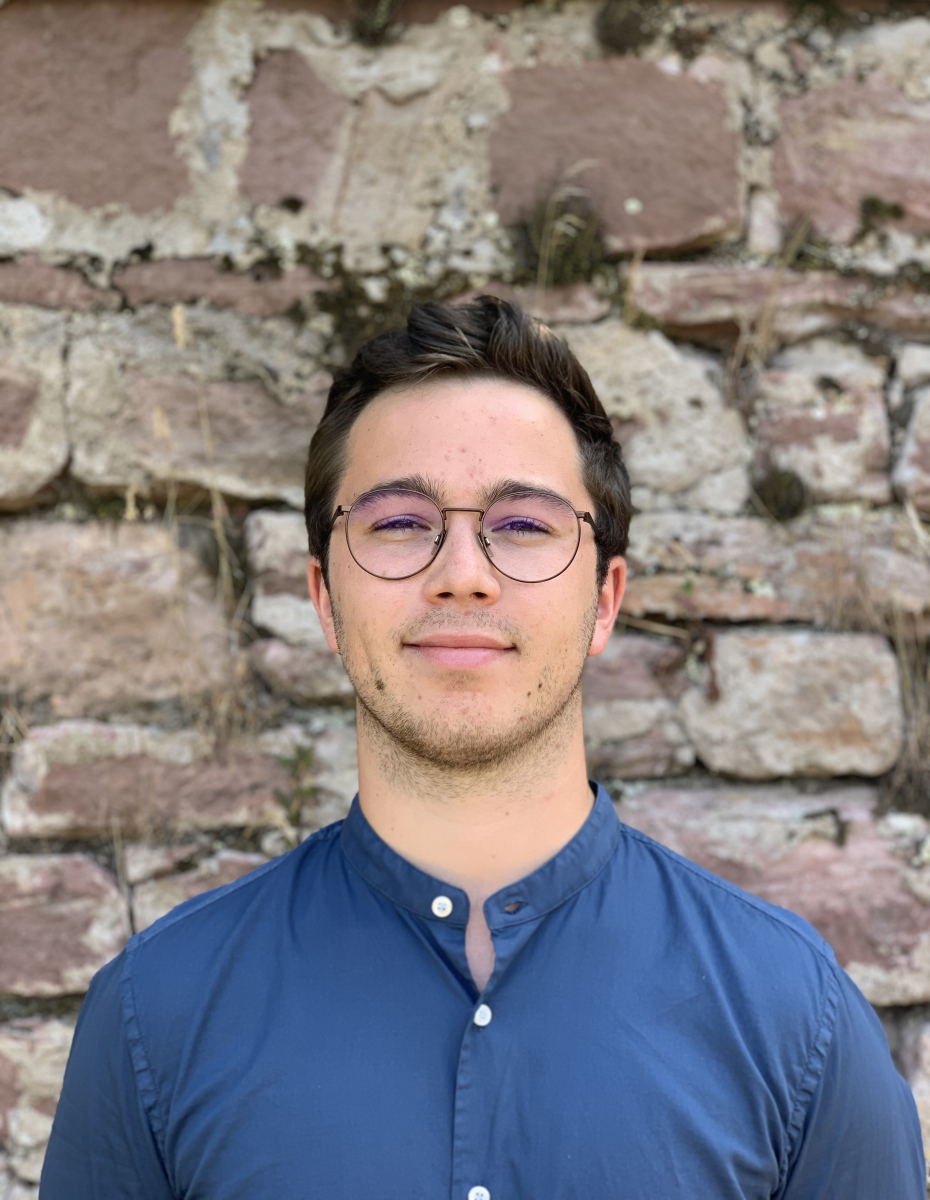 What do you particularly like about the Master's degree programme in Information Systems?
What do you particularly like about the Master's degree programme in Information Systems?I really like the way the lectures are organised. The lectures are much smaller compared to the courses on the Bachelor's programme. There were around 140 students in one course, whereas now there are more like 20 to 30 students in attendance. This creates a much more personal atmosphere and you have more interactive discussions. In the first Bachelor's semesters, you sometimes sit in a huge lecture theatre. In the Master's programme, conversations between professors and students are much more frequent.
What does the Master's degree programme in Information Systems involve?
You can specialise further in the Master's degree. In addition to the two specialisations, you can choose seminars and project seminars according to your interests. In my opinion, this is cool because you have the time and capacity to familiarise yourself with areas that you are interested in.
How do you envisage your professional future after graduation?
Due to my positive experiences so far during my studies and the exciting topics in Information Systems, I wouldn't exclude the possibility of staying at the university after my Master's and working as a research assistant. However, I would like to decide at a later point what I will actually do. For me personally, it is important that I work in an area to which I can also make a contribution. I would like to have the freedom after graduation to choose a job or role that really interests me and that I would like to do in the long term.
What does your work as a SHK at the Department involve?
I currently work at the Department of Information Systems and Information Management. This is already my second job at the Department, I was already SHK in the study coordination. I am currently working on a research project or study. I have prepared interviews and also conducted some myself. I am also involved in planning meetings for scientific projects. I have already written one scientific paper myself and contributed to another. I'm currently really enjoying working in research.
What are the advantages of working as a SHK?
The connection to other employees at the Department is particularly positive, as you can build up a network. In general, working as an SHK has the advantage that quality usually takes precedence over quantity and we are given the time to think about our tasks and take time to reflect on them. In my opinion, this is also very valuable for your professional future, so that you can scrutinise certain topics and perhaps even rethink them. Fortunately, you have the resources for this in science. What I also like is that the ideas and opinions I contribute are taken into account and worked on further. This is very appreciative and beneficial for my development.
-
Wilson
 Why did you decide to study Information Systems in Münster?
Why did you decide to study Information Systems in Münster?During my bachelor’s in Business and Information Systems in Ghana, I always wanted to pursue a master's degree. Münster is the headquarters of the European Research Center for Information Systems, although there were a range of choices for my masters, Münster is the best fit for me in Europe. Besides, the universities in Germany are mostly free of tuition. That is an advantage compared to other universities in the UK or the North America. I was really happy to be admitted to the program.
What do you like most about the Information Systems program?
In our program, there is a Track system and an Elective system. We have the freedom to select the courses we prefer. It‘s our choice to decide when and which course to take every semester. I do like this flexibility. It is important for a student like me who knows what I want. So I can easily plan how to learn, and when to take seminars or extra curriculums.
How would you describe the Information Systems program?
The Information Systems program is packed with lots of information. There are various tracks at your choice. Meanwhile, the workload of each course is really demanding. The good reputation of the University of Münster reflects the high education quality and tremendous workload as well. In the end, what is more important is that you can learn a lot after putting so much effort.
How is the content of the program?
From the courses of the Business Networks Track, I‘ve learned about how networks in a business world are formed. The lectures give insights into the technical aspects of the formation of both business networks such as strategic alliances within companies and personal networks such as a private social network on Facebook . The focus of the Information Management Track lies on the digital business strategy such as IT Management and IT Governance. I‘ve gained a deep dive into the perspective on how IT managers collaborate in the digital age. Other seminars, for example, the academic writing seminar in which I also participated, provide us additional professional information on academic writing.
Guest lectures are usually part of our courses. I‘ve taken one course with guest lecturers from France and the US. This international diversity has enriched my personal knowledge in the field. Furthermore, we can choose programs from other departments such as the Marketing Center Münster. I selected one interesting seminar from marketing and worked with fellow students from different faculties in a comfortable group size. I acquired more understanding in technological influence on people‘s daily life. It was really amazing to discuss the topic with peers from different background.What is your life like outside of the university?
Currently, I work in Bolt, an e-scooter company. In my free time, I love to play volleyball. Recently, I‘ve won a scholarship (Deutschlandstipendium). Yesterday, all scholarship winners met together in the castle. It was great to have such a moment in my student life. I just came to Germany in April 2021, but I'm happy with my German. I did not have time for the language courses, yet by living in Münster and putting myself out there, I am able to pick up one or two German words.
What is your plan for your career path after graduation?
My current plan is to finish my master and find a job in the industry with my IT background. I‘m also interested in a Ph.D. degree for an academic career. I enjoy sharing knowledge with people, especially the people in Ghana, where I‘m from. At the University of Ghana, there is also a Ph.D. program in Information Systems. I think there are a lot of opportunities in both Germany and Ghana, either in the industry or in academia. The master program in Münster will help me to advance my career.
Do you have any tips for future students?
For a student thinking about joining the program, I would advise that they should be ready to put in the work and approach the situation in the master's program as a learning curve. And although it might be really intensive there are so many lessons to be carried out from the master’s program. I would advise them to be careful about choosing their tracks because although every course is very interesting, you have to complete two in order to graduate. So before getting in, they should have a clear vision of what tracks they want and have fun with the electives because there is so much knowledge to learn in the master’s program. And I would probably advise other international people to try and take German courses together with the master.
-
Neha
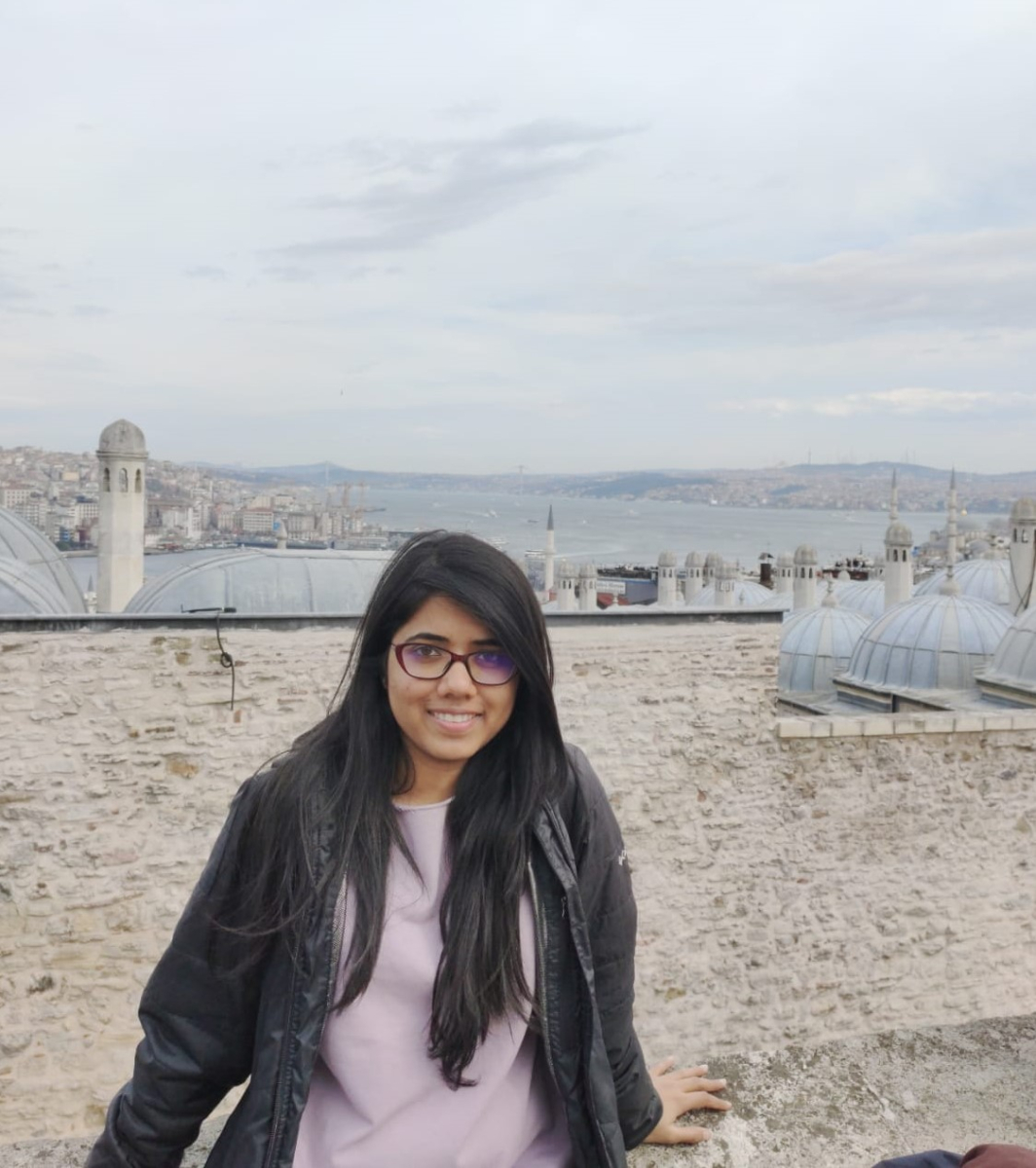 Why did you choose to study in Germany?
Why did you choose to study in Germany?
During my previous study at Michael Smurfit Business School at University College Dublin (UCD) in Ireland, I had noticed that there are many top-ranked universities in Germany with globally recognized study programmes coupled with interesting future opportunities. Getting into one such programme would enable me to explore and grow in my field of studies. At the same time, Germany is affordable to live in, especially for international students like me. With plenty of working opportunities while studying gives a huge advantage. In addition, I have always been fascinated with German culture and wanted to learn German to get to know their culture even better.
Why did you choose to study at the University of Münster/at the WI institute?
The headquarters of the European Research Center for Information Systems (ERCIS) is part of the University of Münster. As my study is in the field of Information systems, this mattered to me the most as I would be taught by the best faculty who is also part of the research work in ERCIS. Moreover, it is one of the best universities in Germany that offers a flexible study structure in my field of interest attracting students from all over the world.
What do you think of your study so far?
I have had a positive experience so far. After completing most courses, I’m confident that this programme has transformed me into a more confident individual. The study has enabled me to use my prior knowledge and experience in this field in a more effective way. I have thoroughly enjoyed working with people from across the world as part of academic group projects. Being mentored by one of the best faculties here has truly enriched my experience of studying at the University of Münster.
Would you recommend spending time studying at the University of Münster? Why?
I would highly recommend studying at the University of Münster because of the quality of education. The courses are challenging but also interesting. There are many things you could learn, and the skills gained by engaging in academic projects get you well prepared for your future career. In addition, as a university city, Münster has a diverse crowd of people from across the world as well as international students that make learning enjoyable, thereby enriching the living experience and making the atmosphere of the town vibrant.
-
Lena
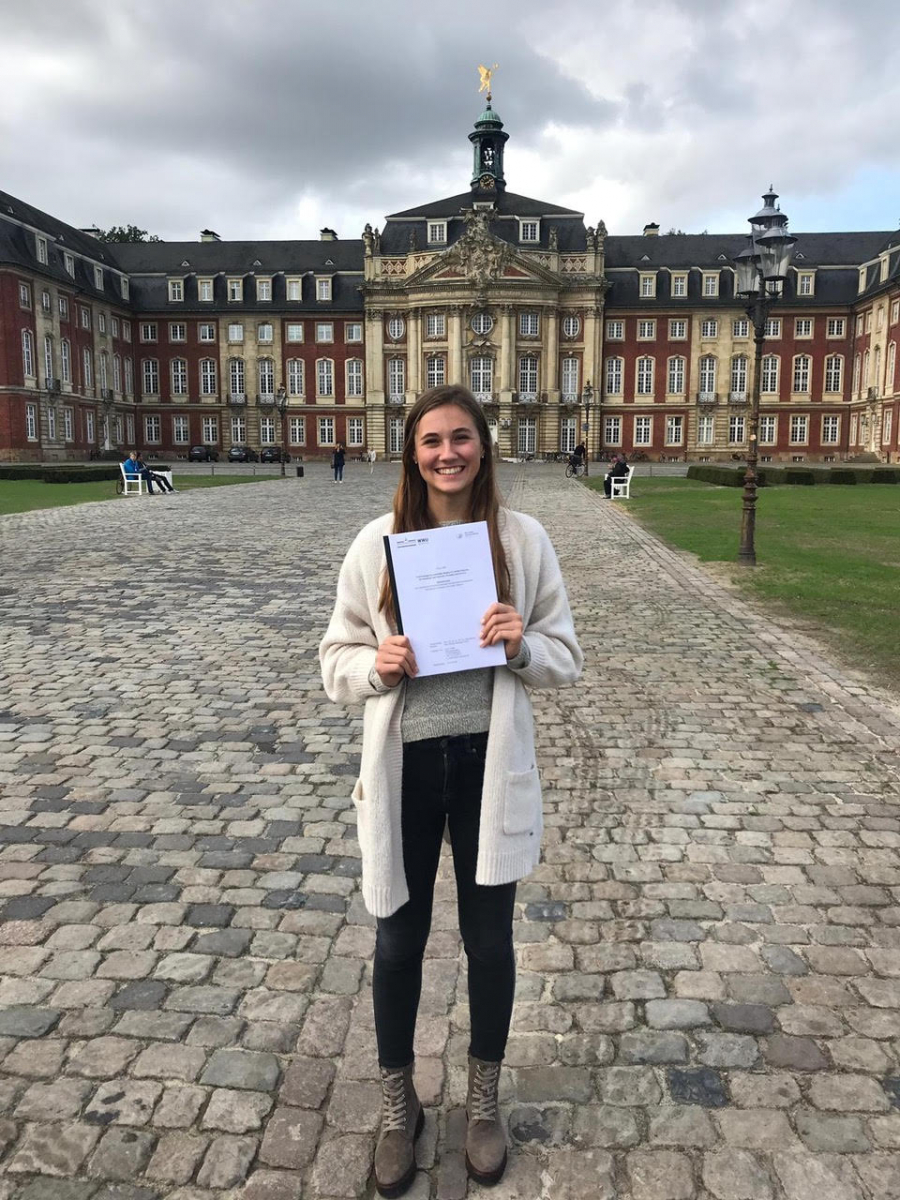 Did you always know that you wanted to study Information Systems?
Did you always know that you wanted to study Information Systems?During my time at school, I was lucky that computer science was offered as a course from 7th grade onwards. Later, I also chose computer science as an advanced course at school. I think CS is very interesting but didn't want to study solely computer science after my A-levels, as that would have been too math-heavy for me personally and would have restricted me too much to one area.
That's why I chose Information Systems as the combination of business studies and computer science offers really good job opportunities. Information systems specialists are often wanted by companies because they can act as mediators in project management.
Why did you decide to study at the University of Münster?
I knew after finishing high school that I would like to study at a University in North-Rhine-Westphalia. I ultimately chose Münster because I liked that it is a student city. But Information Systems at the University of Münster also convinced me from an organisational point of view because the combination of business administration and computer science is well-designed. Compared to other Information Systems degree programmes, the two aspects are not separated as much. Instead, the institute thought about what Information Systems as its own discipline really is and how to implement it.
What do you like best about the degree programme?
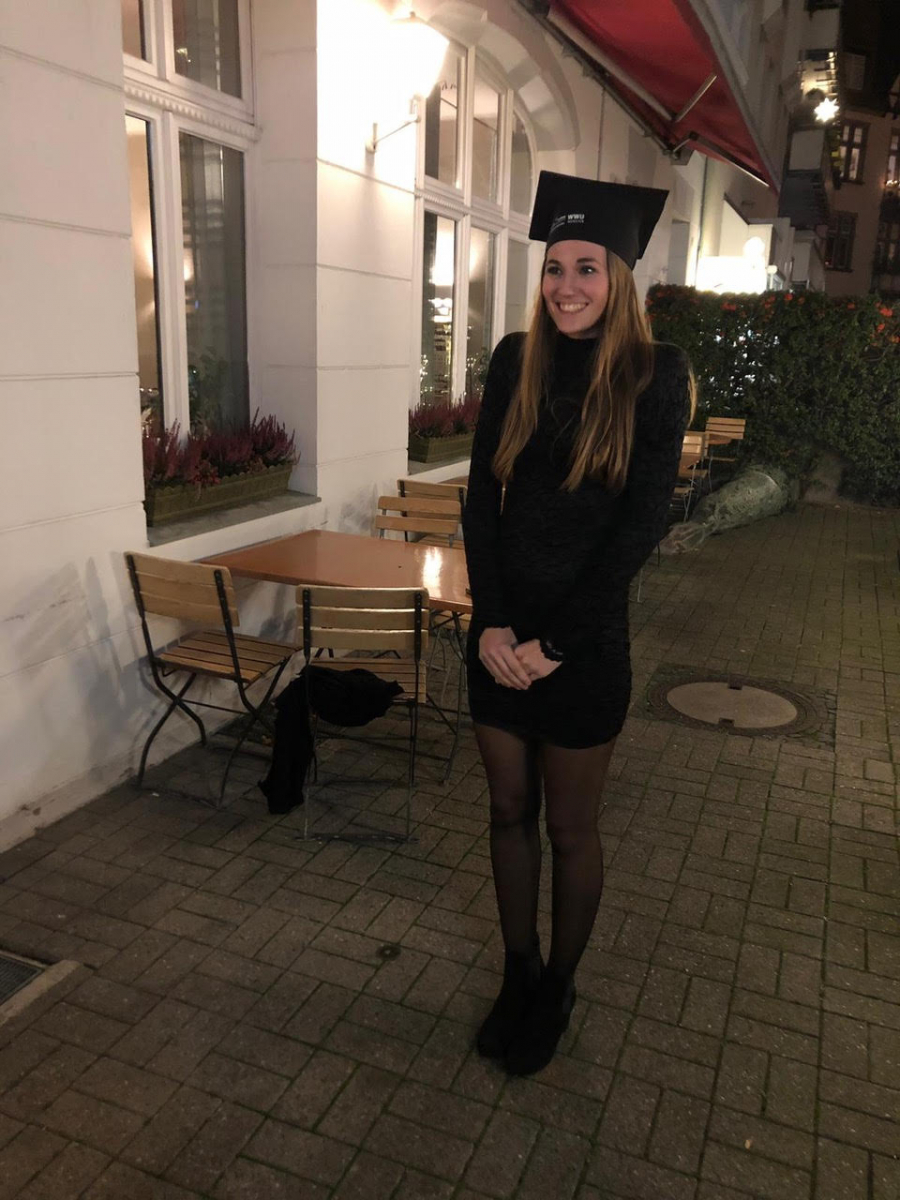
Especially in the Master's programme you have the opportunity to choose according to your interests. A total of seven tracks are offered, from which you can choose two. You also have the option of choosing other subjects. I chose the tracks Marketing and Business Networks. The two subjects are very different and have little overlap but I really like the different focus areas and am glad that I can combine a technical with a business component.
Did you do an internship or a semester abroad?
During my bachelor's degree, I spent four months abroad at the University of Shanghai where I mainly took business administration courses. During my bachelor's degree, I also did an internship in the area of consulting focusing on change management and then continued working at the company as a student trainee. Between my Bachelor's and Master's degrees, I also completed an 18-month trainee programme in software development which I can really recommend to anyone. In general, the degree programme is rather theoretical, which is why practical experience is super important. The work experience really helps you a lot. You are more mature and learn to see things from a completely different perspective.
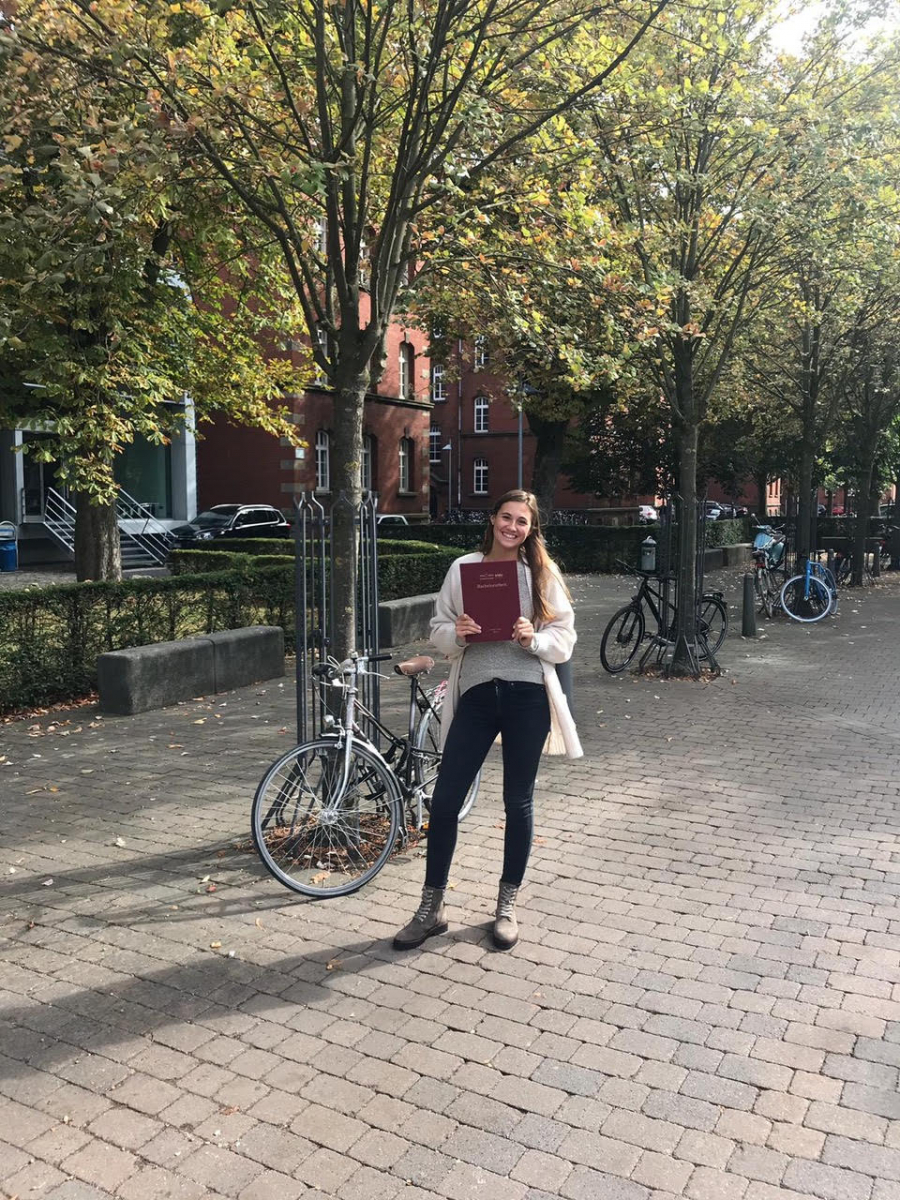 Do you have any tips for future students?
Do you have any tips for future students?It definitely helps to know in advance how the exams are scheduled for the semester. The early exam period can help you to spread out your studies by thinking about how you want to take which course and when to take it. It also helps to look at the electronic course catalogue, which contains all the important information.
I can also recommend trying out different departments during your studies and looking into completely different subject areas. By choosing different courses, I found out that I also enjoy other departments - even if I didn't expect it that way beforehand.
-
Tim
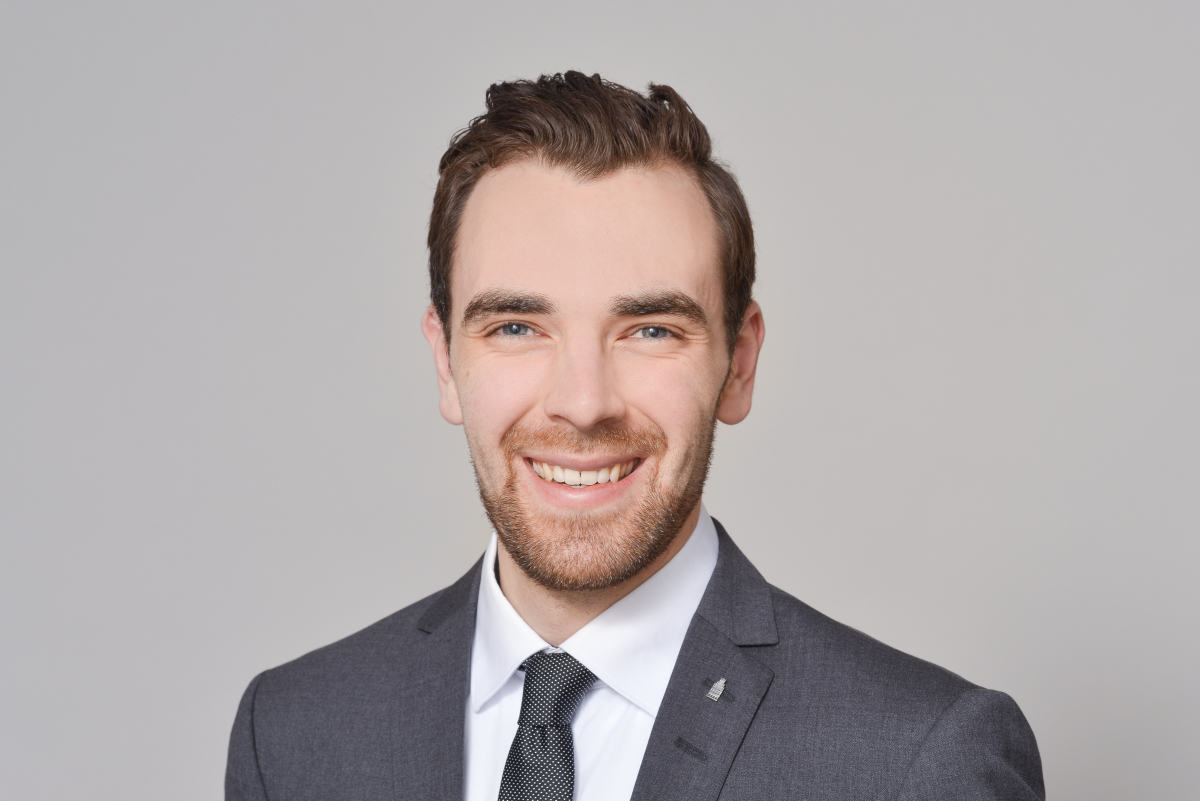 Why did you decide to study Information Systems?
Why did you decide to study Information Systems?At school, I initially chose a track that focused on languages. In 10th grade, however, I changed my mind and chose computer science and later even took the advanced course in computer science. My CS teacher at the time advised me to consider Information Systems as an option. After thinking about it for a short while, I decided to try and apply for a place to study Information Systems.
Then I did some research to find out at which universities Information Systems is offered. Since I am originally from Münster, I of course also looked at the University of Münster and found out that the Information Systems Institute is quite renowned. That's why I decided to study here.
How would you describe the Information Systems programme?
The degree programme is definitely demanding. In the first two weeks of lectures, it was still quite relaxed but then I noticed that the pace changed. Because you often have weekly or monthly assignments or have to give presentations the programme is quite work-intensive and the workload is very high.
One aspect that runs through the entire programme is that you work a lot in groups. Sometimes you can choose the groups yourself but sometimes they are drawn by lot. The way this is handled varies from course to course.
What does the content of the degree programme look like?
In the Bachelor's degree, there was a fixed course plan for all students. However, you could still freely choose two courses and a project seminar. The Master's programme is structured differently. Here you have a lot of freedom and can choose two out of seven tracks. These tracks then consist of three courses each. I chose Business Intelligence and Information System Development. The degree programme is super variable and very multifaceted. For example, you can also choose to solely focus on computer science or business administration courses to give yourself an even more interdisciplinary focus.
Was the switch from the Bachelor's to the Master's programme a big adjustment for you?
The biggest change was the language, as the Master's programme is taught entirely in English. However, I already had the opportunity to attend English lectures and seminars from time to time during my Bachelor's degree. In the beginning I was a bit timid speaking English but you get used to it quickly and definitely get the hang of it. Especially during group work, the internationality of the students demands to only speak in English, which makes it easy to get into it.
Are there prejudices about Information Systems students? And if so, are they true?
Yes, there are definitely prejudices. For example, that Information Systems students are rather introverted and reserved, but also accurate and over-correct. I tend to think that they just do their own thing and think pragmatically and don't care as much about their self-portrayal to the world but rather about whether something fulfils a benefit, for example. Sometimes we might be a bit idiosyncratic, but we are still very kind people.
What is your life like outside of university?
I play badminton and have been the coach of a youth badminton team for six years. In general, I really like living in Münster, especially because the city lives up to its reputation as a student city. Especially in my Bachelor's degree, I was out and about a lot in the city's many good bars and pubs. In the meantime, I have really been into cycling. The tours through the surrounding area of Münster are amazing. In addition, I like to spend my time photographing architecture and brewing good espresso.
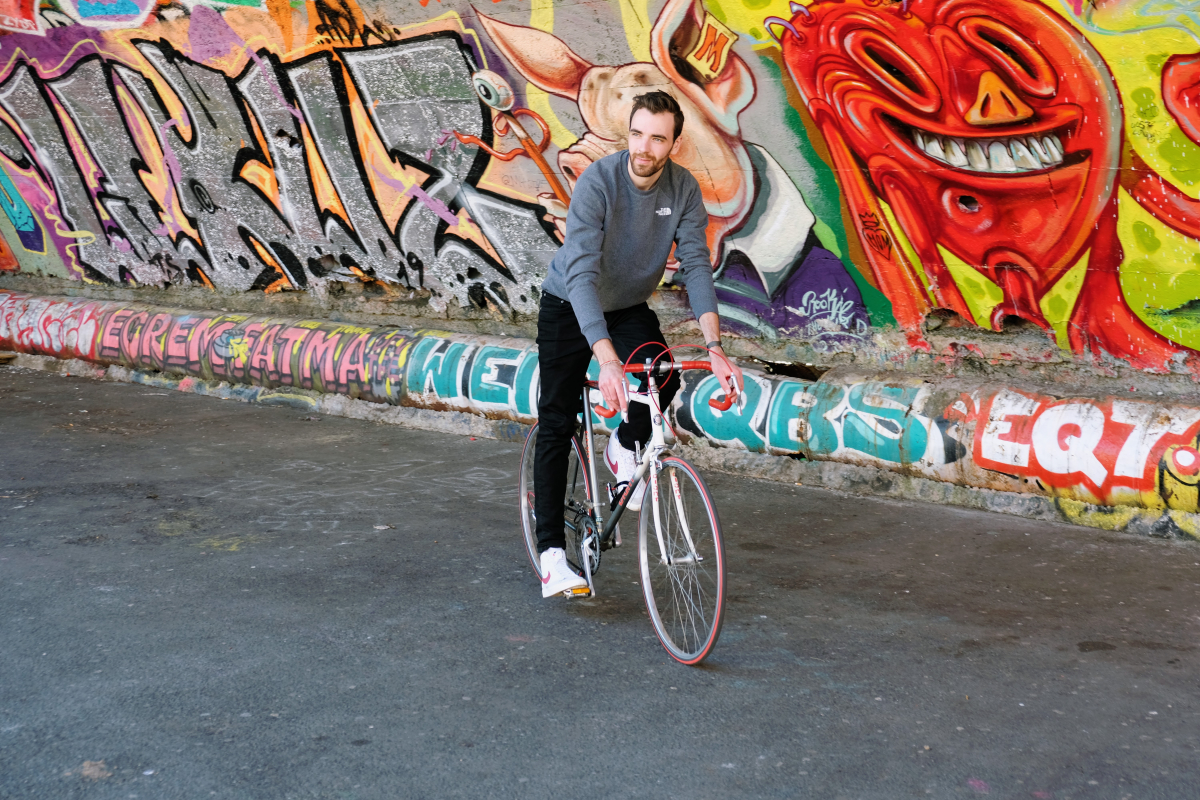
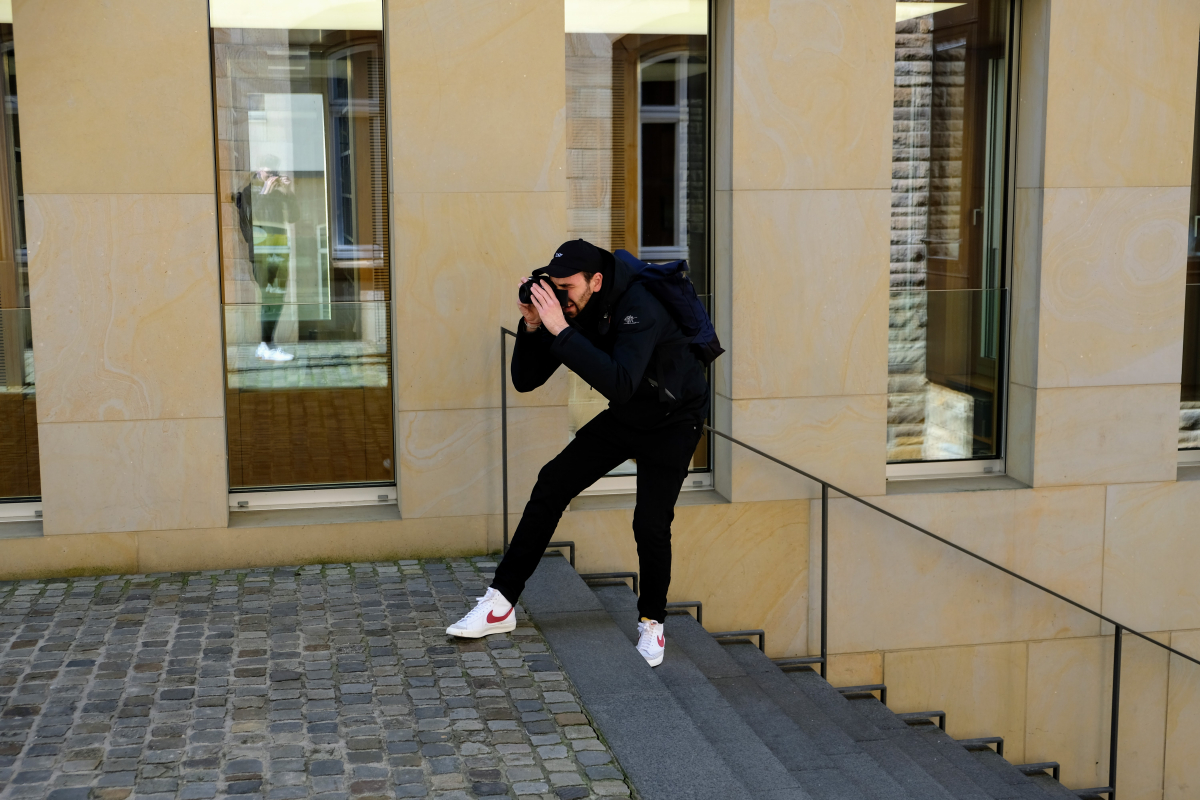
What are your plans for your professional future after graduating?
During my bachelor's degree, I happened to get a job at zeb, a management consultancy based in Münster, through a fellow student. After my Bachelor's degree, they offered me the chance to take part in a kind of scholarship. This means that I first worked in consulting for a year and then started my Master's degree. After my Master's, I will then have the opportunity to join zeb as a consultant in the financial services sector.
Do you have any tips for future students?
Before you are admitted to the Master's programme, you have to take a language test and achieve level C1 in order to be accepted. My tip for all applicants who have studied in Münster before: Try to take the test at the Language Centre because it costs much less there than doing it at any other external providers.
-
Marius
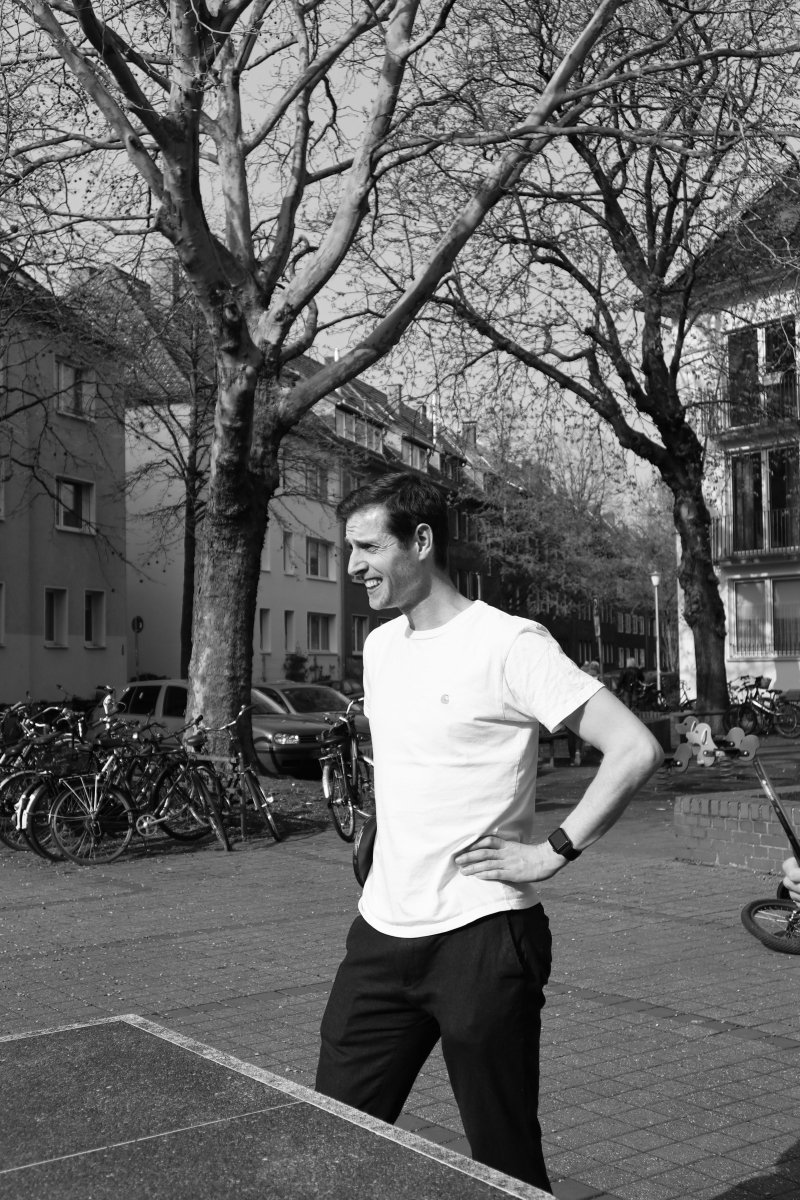 What has your academic career been like so far?
What has your academic career been like so far?I completed my master's degree in Information Systems at the end of last year. Since then, I've been a PhD at the business administration department of the University of Münster but with a very technical research topic. I had been a student assistant there since my Bachelor's degree and had my own research topics early on. That's why I wanted to stay at the department after my Master's degree so I could continue my research.
When did you realize you wanted to study Information Systems?
I first started studying business administration. But I was missing something because my studies were not as technical and practice-oriented as I had hoped. This in turn led me to do an internship in Lisbon. During my internship, I was extremely lucky to have a lot of freedom. That's why I also got the chance to programme a tool for a more structured cost overview. Since I didn't know anything about programming at that time, I taught myself and realised that I really enjoyed it. After my internship, I then looked into the Information Systems Bachelor's programme and contacted the examination office at the university. After a bit of back-and-forth, I was able to enrol for Information Systems without admission and even transfer some of my credits from the business studies programme.
Did you specialise in a specific subject area during your studies?
During my Master's degree, I wanted to focus more on the technical components of the degree and therefore chose some courses from the programming track. At the same time, I also took courses from the marketing track, where I was able to use my creativity. This gave me the chance to combine my two interests and get to know different perspectives. I would have liked to have this freedom in the Bachelor's programme as well, because there you tend to follow a very structured track in which many talents can’t express themselves as freely.
How do you envision your professional future?
Besides my interest in scientific work as a PhD, I also have a practical side. I am currently involved in founding the start-up lemon.markets. We are developing an API, a programming interface for automated trading on the stock market. I think it would be cool if more Information Systems students got involved with start-ups, because I think it's a really fast way to develop yourself and, in the best case, follow your passion, which I think is pretty valuable.
What is something that you should definitely have done in Münster as a student?
Münster is a very beautiful city with many cafés that you should try out. For people who are new to Münster, I can also recommend muenster.fair, a platform that recommends sustainable concepts in the city. Their tips helped me discover some of my favourite restaurants, cafés and second-hand shops. Besides that, I can also recommend leaving the city for a bike ride through the Rieselfelder or the Baumberge to see the surrounding Münsterland.
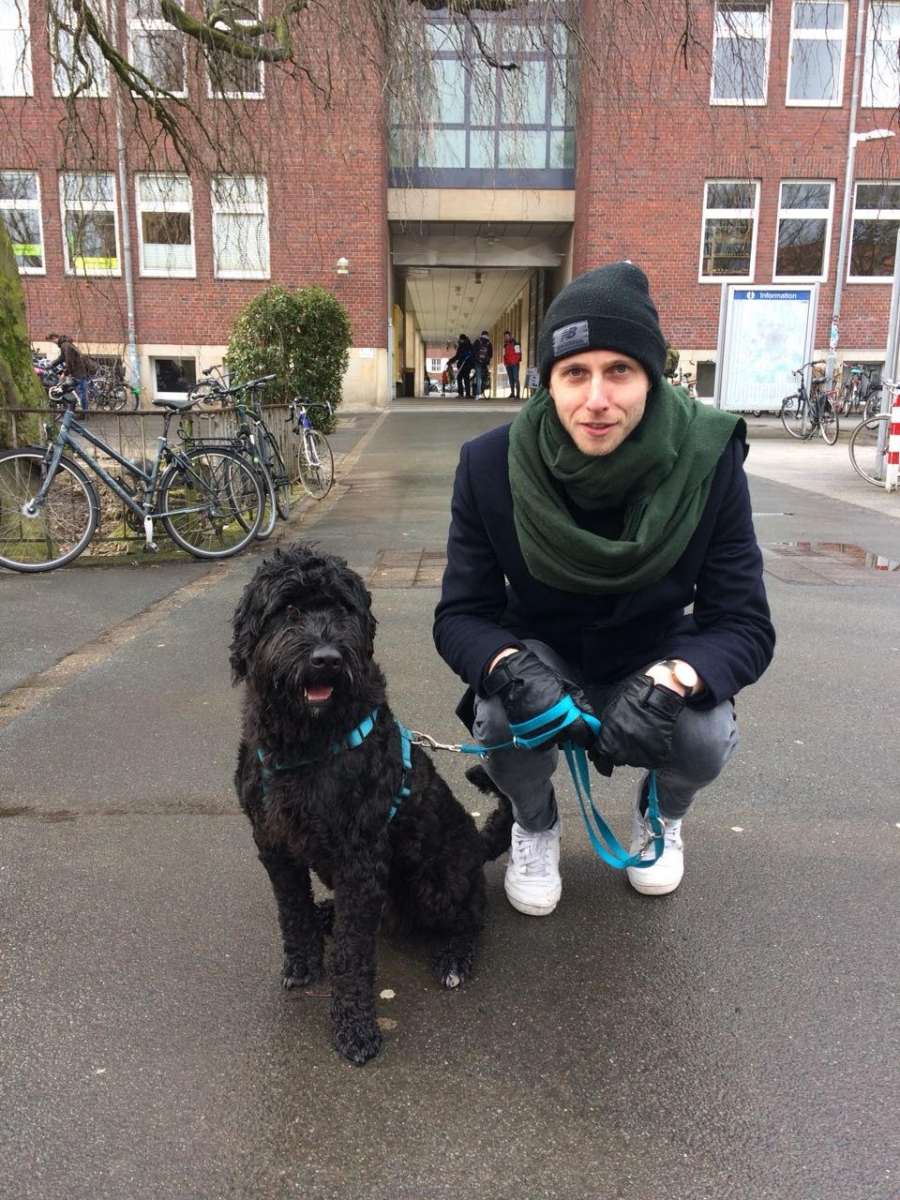
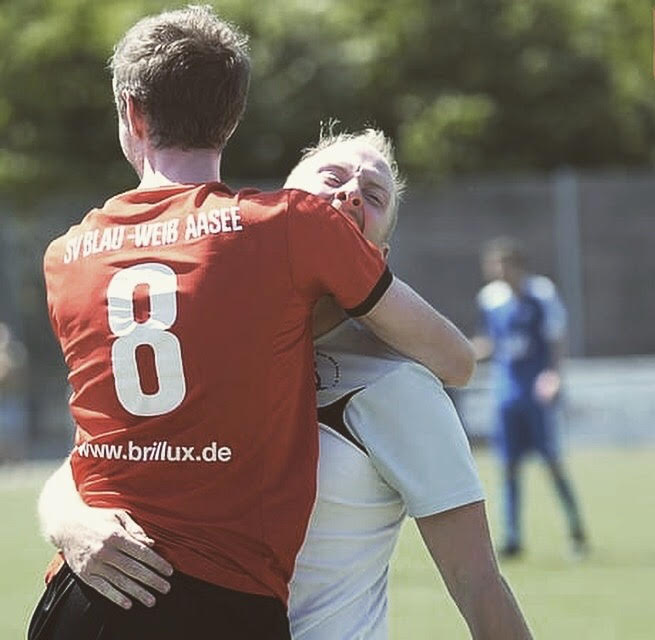
-
Leve
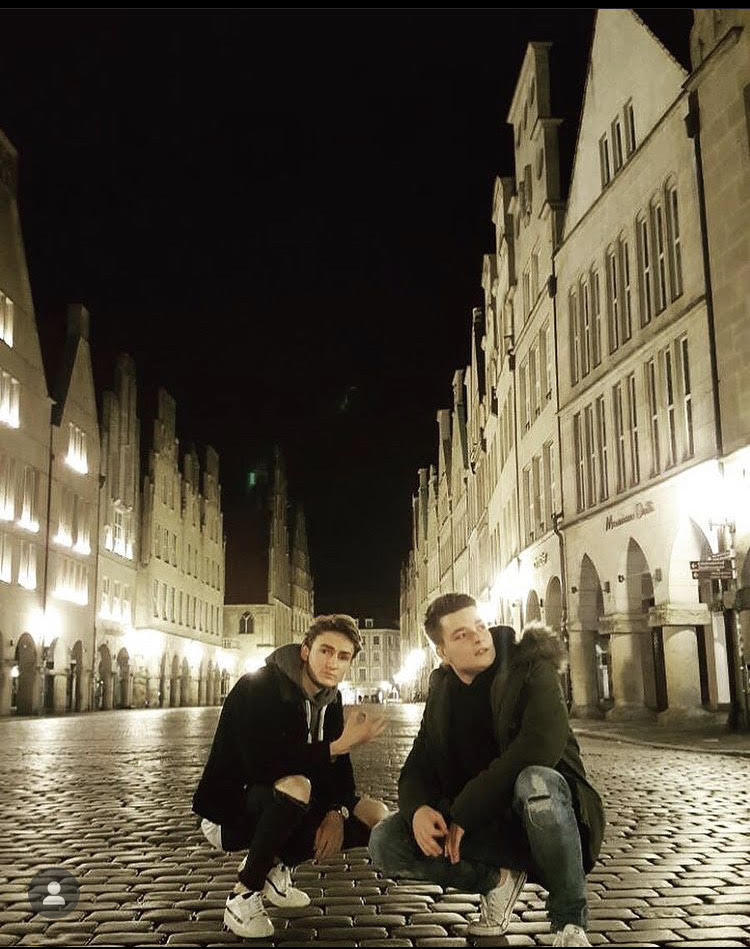 Did you always know that you wanted to study Information Systems?
Did you always know that you wanted to study Information Systems?After my A-levels, I didn't really know what I wanted to study at first. However, a few of my friends and I had the plan to live together in Münster. That's why I applied for Information Systems at the University of Münster. I was a little sceptical at first because I didn't study computer science at school and I couldn't estimate how computer science-heavy the degree programme would be. During the first semester, however, I noticed that the topics of the programme were very interesting to me and when I passed the first computer science exam at the end of the semester, I knew my decision to study computer science was the right one.
What do you like best about the Information Systems degree programme?
Information Systems is a subject that is in great demand and will become increasingly important in the future. That's why the degree programme is one of the best things you can study from a job market perspective. Because the institute in Münster has a good reputation, you have even better chances in the professional world.
Are there major differences between the Bachelor's and the Master's?
In the Master's programme, you can choose what you want to do thematically and thus decide on which topics you’d like to focus on. I, for example, didn't choose a module that involved a lot of programming because I'm not that enthusiastic about it. Instead, I chose the Information Management and Process Modelling tracks. You can also choose other modules from other tracks in which you are interested, which I find is very great and gives a lot of freedom.
Have you already gained working experience during your studies?
Since I wanted to complete my Bachelor's degree in six semesters, I decided against doing an internship at that time. Instead, I mostly worked during the semester break. Now, during my Master's degree, I work as a student assistant at the Chair of Business Informatics and Information Management of Prof. Dr. Becker.
Do you already have plans for after graduation?
I could imagine working in IT consulting, for example. But the Information Management Master's track is also geared towards taking on higher positions in companies later on, for example as Chief Information Officer (CIO). As far as the industry is concerned, I have not decided yet and am open to try out different ones.
Do you have any tips for future students?
During my studies, I spent a lot of time at my second home on the island Amrum, which is why I was often absent during the semester. Both lecture slides and assignments were online, so it wasn't absolutely necessary to always be in Münster. However, this also meant that I probably had to work even harder during the exam period to pass the exams. Although it wasn't the "classic" study programme, I had a very nice time studying in Münster and can recommend it to everyone. What I can't recommend though is not attending the lectures at all. But, overall, you definitely don't have to feel bad if you are absent for a longer period of time during the semester.

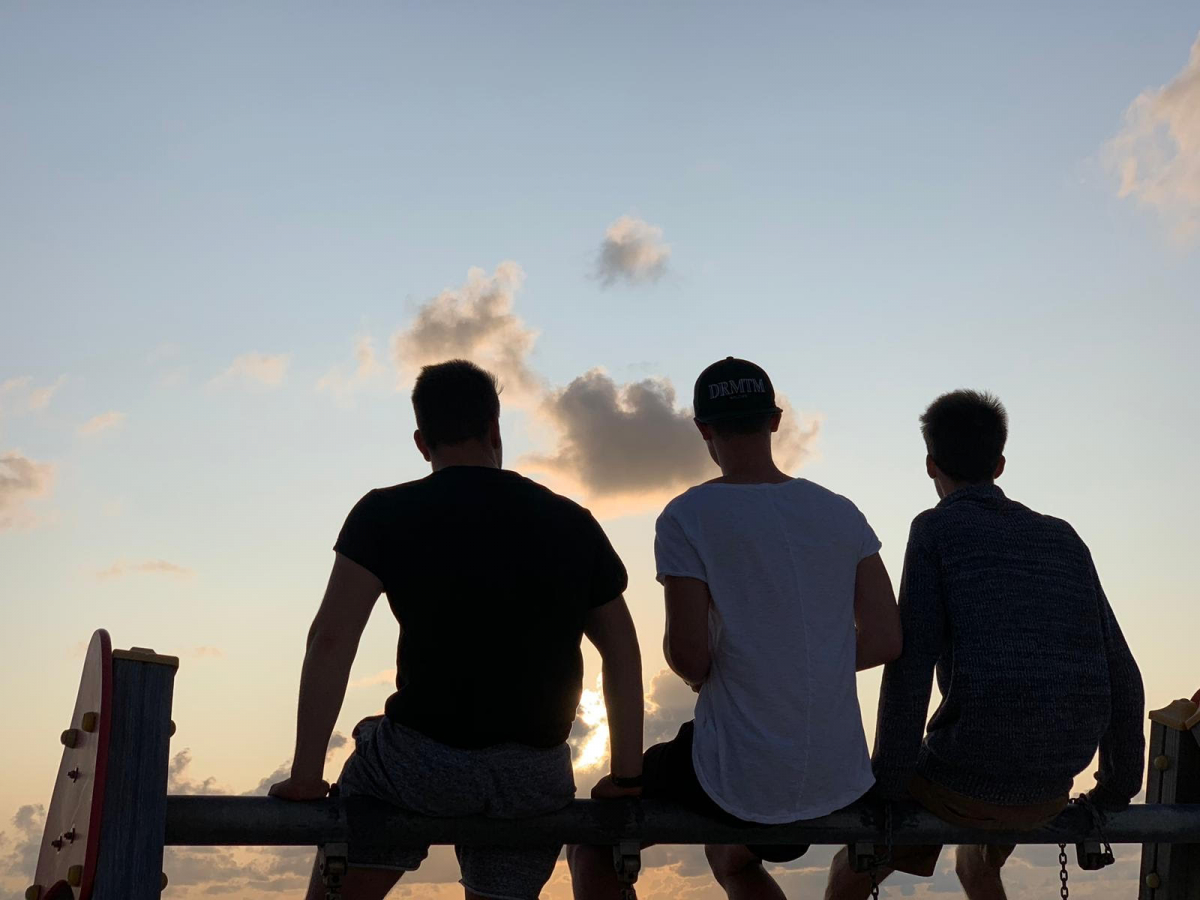
-
Jing
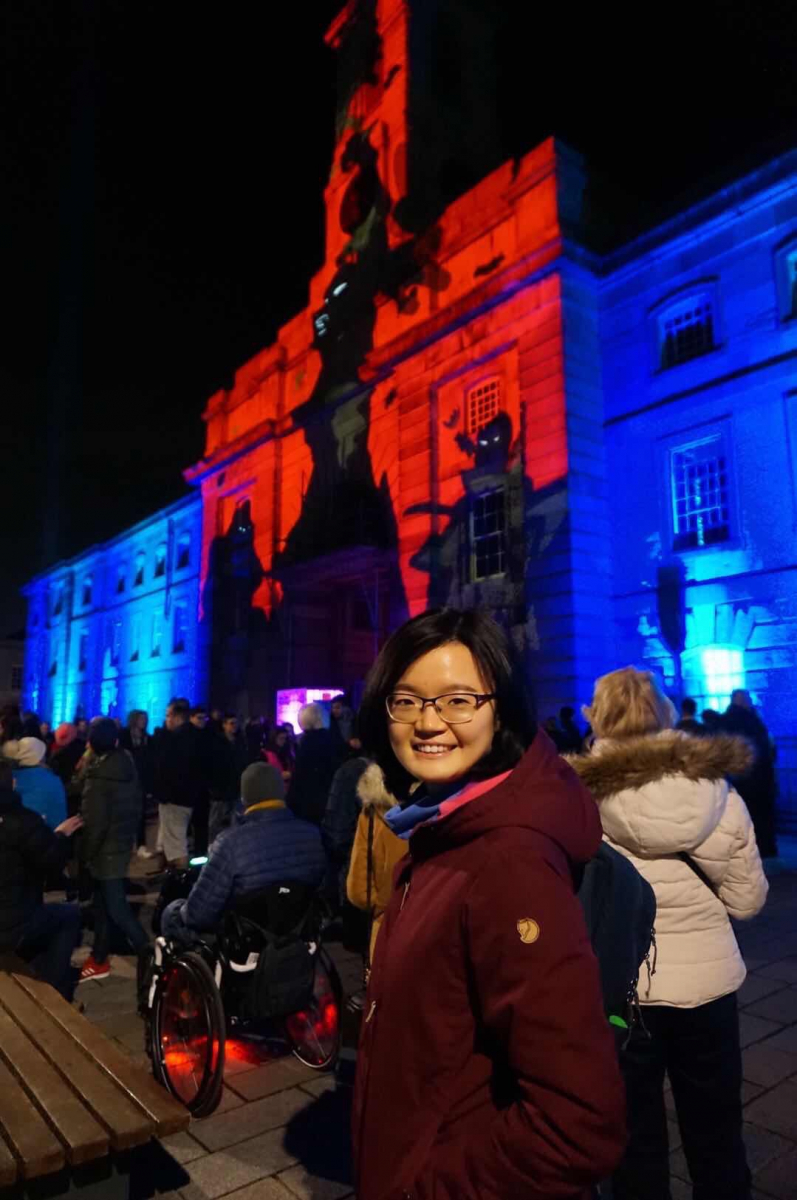 Why did you decide to move to Germany?
Why did you decide to move to Germany?I have always loved learning foreign languages. So in 2011, I started taking German classes in China. This way I got to know the German culture and made new friends. In 2014, one year before I moved to Germany or, more specifically, Dortmund, I was on a business trip in Europe. I had a wonderful time here and therefore had the idea to try living in Germany for a longer period of time. Since I wanted to continue my academic education and was very interested in the field of business administration and as German universities have a good reputation worldwide, I was convinced that it would be the right decision for me to move to Germany.
How did you come across the Information Systems Master’s program at the University of Münster?
During my business studies in Dortmund, I developed a special interest in the field of "Digital Business Transformation" which motivated me to continue my education in the field of IS. Through research on the internet, I found out about the Master's program in Information Systems at the University of Münster which offers a wide range of opportunities for specializations and research topics in preparation for a PhD. I was also attracted by the fact that the IS institute has many international cooperations within the research network ERCIS (European Research Center of Information Systems) and that I would have the opportunity to spend a semester abroad at one of the institute’s partner universities.
What do you like most about your course of study?
I particularly like the wide range of specialization options e.g. Business Networks and information Management courses which focus more on the business component or Business Intelligence and Information System Development courses which are more tailored to technology enthusiasts. I'm, for example, very interested in the modelling and optimization of business processes, so the Process Management major is the best choice for me. Overall, the program is not only focused on theory but also very practice-oriented. During the course of your study, you can already get in touch with external companies who, for example, come to the institute for events. In addition, guest lectures keep you up to date with the latest trends in the field of Information Systems. I also like the international atmosphere at the institute. There is close cooperation between our institute and numerous universities worldwide. Events and seminars are held by international guest lecturers and going abroad for a semester is also possible. I, for example, applied as an exchange student for the upcoming winter semester at the University of Zurich and was successfully nominated by the IRC (International Relations Center).
What was your greatest success in your studies?
From a technical point of view, I have particularly developed my ability to work scientifically and think critically. Personally, I got to know different cultures and build up a global network. Studying here not only provides me with highlights for my CV but has also given me unique experiences that I will treasure throughout my life.
What does your life look like outside of your studies?
Besides my studies, I work as a student assistant in the field of digital marketing at our institute. Since the summer semester 2020, I have also been volunteering as an inclusion tutor at our faculty and have been supporting students with disabilities. On weekends I like to goout into nature to hike through the Münsterland and I do fitness exercises almost every day. I am also a big fan of the Nordic countries and the mountains. In the last few years, I have had the chance to travel a lot and have visited Scandinavia many times.


